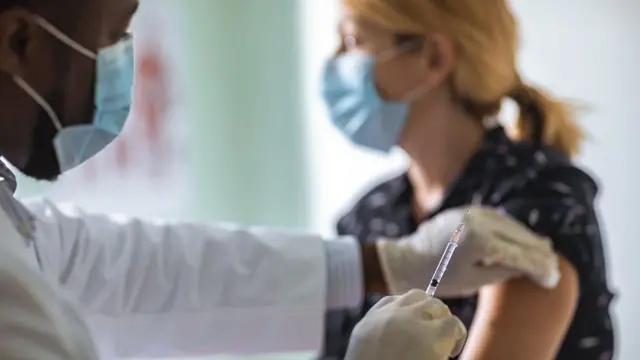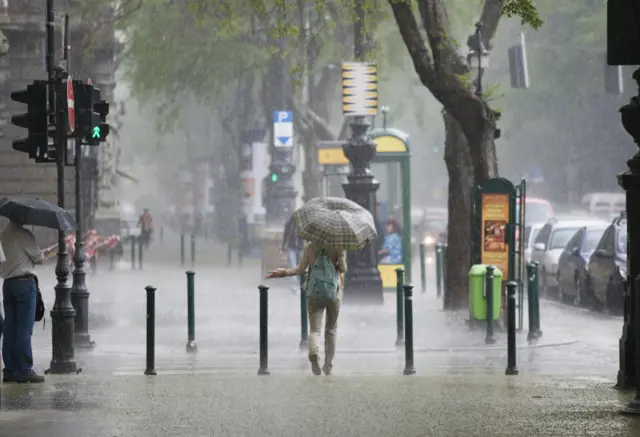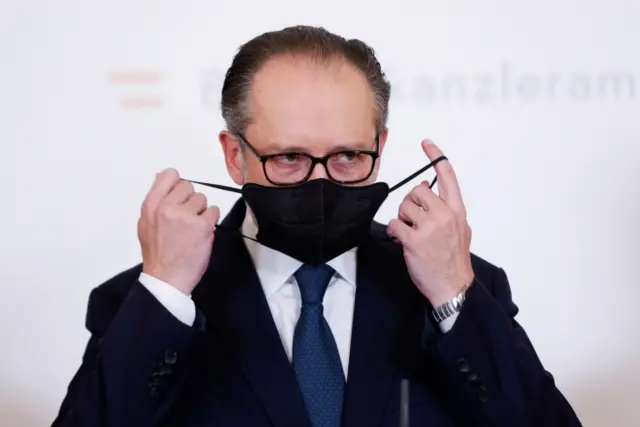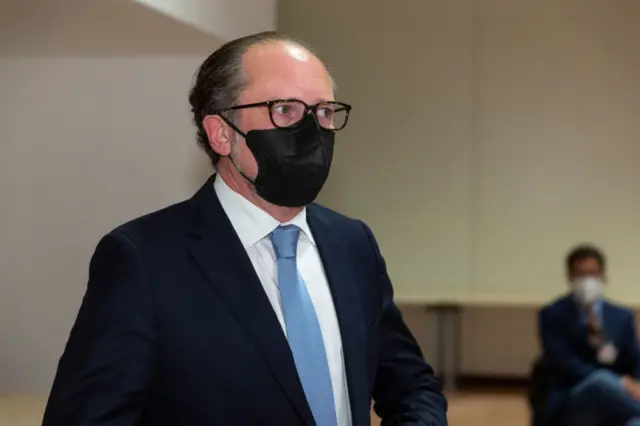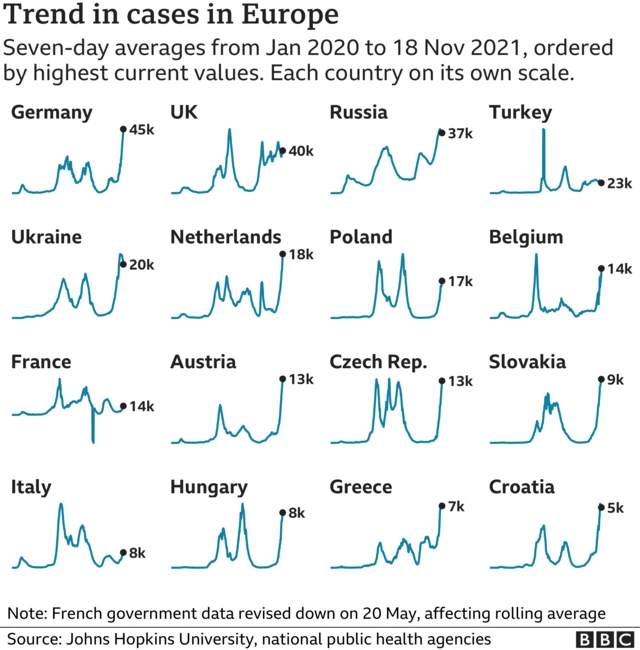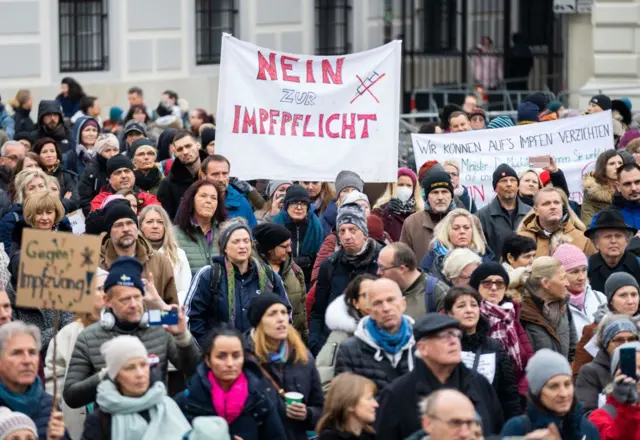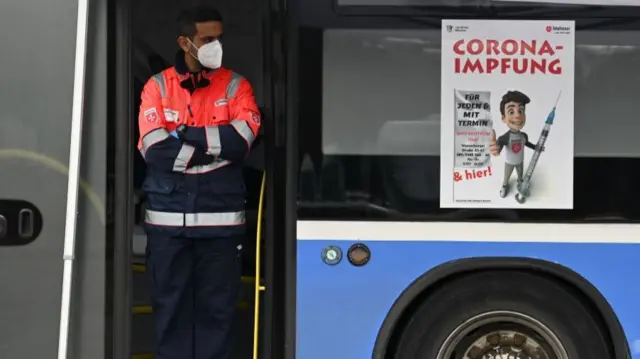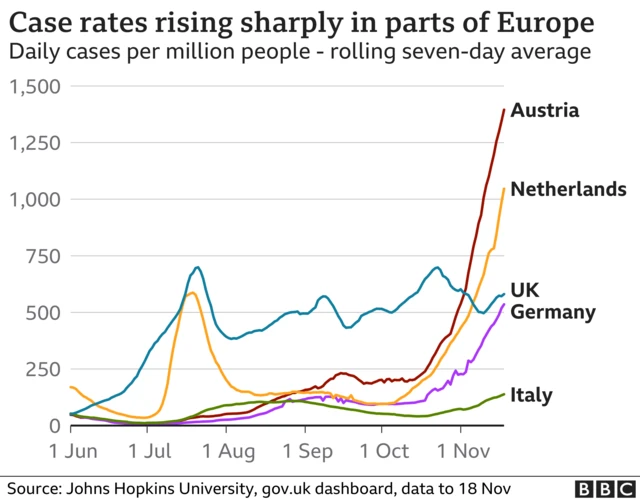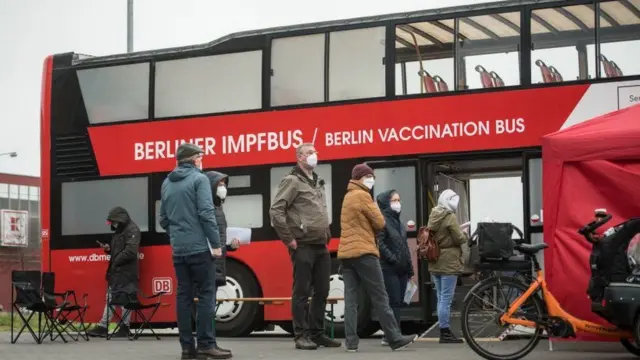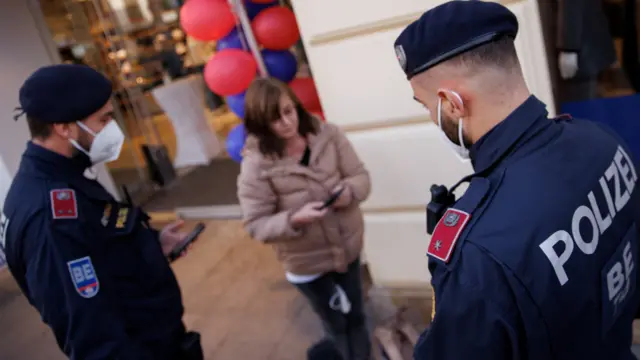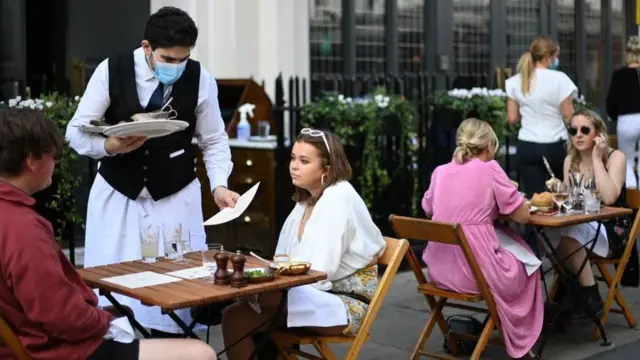What's been happening today?published at 12:45 GMT 19 November 2021
 Image source, Getty Images
Image source, Getty ImagesA new national lockdown has been announced in Austria
If you are just joining our live coverage of the coronavirus pandemic this Friday lunchtime, here's what you need to know.
- Austria has announced a national lockdown will start on Monday amid rising Covid cases. People will be told to work from home and non-essential shops will close
- The country's chancellor Alexander Schallenberg has hit out at the unvaccinated, blaming them for an "attack on the health system" as he announced vaccinations will be mandatory from February
- It comes as coronavirus infections are on the rise across much of Europe, with restrictions being re-imposed in Germany, Belgium, Greece, Slovakia, Ireland and the Czech Republic
- Germany's health minister says the country is facing a national emergency after its daily cases hit another record high
- In England, it has been announced that travellers who have had a booster jab will be able to show it through the NHS Covid Pass from today
- New UK figures show one in 65 has Covid, down from one in 60 the week before
- The UK government was not properly prepared for a pandemic, a report by the National Audit Office has found. It said the government lacked detailed plans on shielding, job support and school disruption
- Northern Ireland's health minister has called for more people to be working from home as the nation heads in to winter
